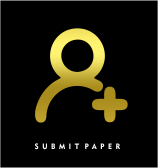ATTITUDE AND STRATEGY OF INDEPENDENT BAND ‘BAHUREKSA’ IN CREATING MUSIC WITH THE CONCEPT OF ROOM POP
Abstract
Music has become one of the most entertaining forms of entertainment. This is because music is very easy to digest. In addition to entertainment, music can also be a source of life for musicians. Some think that music is a necessity in their life. Then there is independent music which is the main reason for this research. Their struggle in life and making their work is very interesting to study. This is because independent music is music that is different from the industry which already has a luxury in music. Independent music carries out every process in making its work independently without any help from the industry. An example of independent music struggles studied here is the process of how they make music in simplicity. This research uses a qualitative method with a descriptive analytic approach, all data is generated through a process of observation, interviews, documentation studies and literatures to produce data that can be justified academically. This data is journalism data plus as a term for documentary films which are intended to compose a script which is then realized in making a documentary. This study found the term room pop which means the process of making music in the room. Room pop is a concept that helps indie musicians who don't have the luxury of making music into something they can do. This is because room pop does not rely on professional tools to make music. Enough with makeshift tools and adequate computers, musical works can be made. The implications of this research as the main data in making a documentary.
Keywords
Full Text:
PDFReferences
Bennett, D., Weller, J., Consulting, J. W., Hannan, M., & Perkins, R. (2012). Music, musicians and careers. In Life in the Real World: How to Make Music Graduates Employable (Issue October). https://doi.org/10.18848/978-1-61229-079-9/cgp
Boman, B. (2019). Achievement in the South Korean Music Industry. International Journal of Music Business Research, 8(2), 6–26.
Cahyo Dwi, A. (2010). Indie Community Music Center Di Yogyakarta. Uajy, XXXIII(2), 81–87.
Dewatara, G. W., & Agustin, S. M. (2019). Pemasaran Musik Pada Era Digital Digitalisasi Industri Musik Dalam Industri 4.0 Di Indonesia. WACANA, Jurnal Ilmiah Ilmu Komunikasi, 18(1). https://doi.org/10.32509/wacana.v18i1.729
Fraser, N. (2012). Why Documentaries Matter. In Reuters Institute.
Kalow Nancy. (2011). VISUAL STORYTELLING by Nancy Kalow. The Center for Documentary Studies at Duke University.
Lestari, N. D. (2019). Proses Produksi dalam Industri Musik Independen di Indonesia. Jurnal Komunikasi, 10(2), 161–168. https://doi.org/10.31294/jkom.v10i2.6207
McHugh, S. (2014). Audio Storytelling: Unlocking the Power of Audio to Inform, Empower and Connect. Asia Pacific Media Educator, 24(2), 141–156. https://doi.org/10.1177/1326365X14555277
Nafsika, S. S., & Soeteja, Z. S. (2021). Learning Innovation of Constructive Drawing in One Point Perspective Subject. 519(Icade 2020), 174–180. https://doi.org/10.2991/assehr.k.210203.037
Netti, S. Y. M., & Irwansyah, I. (2018). Spotify: Aplikasi Music Streaming untuk Generasi Milenial. Jurnal Komunikasi, 10(1), 1. https://doi.org/10.24912/jk.v10i1.1102
Putra, R. M., & Irwansyah, I. (2019). Musik Rilisan Fisik Di Era Digital: Musik Indie Dan Konsumsi Rilisan Musik Fisik. Jurnal Komunikasi, 11(2), 128. https://doi.org/10.24912/jk.v11i2.4062
Putranto, W. (2009). Music Biz Manual Cerdas Menguasai Bisnis Musik. PT Bentang Pustaka.
Ratna, N. K. (2016). Metode Penelitian. Pustaka Pelajar.
Resmadi, I. (2017). Music Records Indie Label: Cara Membuat Album Independen! Dar! Mizan.
Rez, I. (2008). Music Records Indie Lebel.
Schulze, C. (2014). Identity Performance in British Rock and Indie Music: Authenticity, Stylization, and Glocalization (Issue June). Lund University.
Supiarza, H. (2016). Minimax Sebagai Konsep Berkarya Slamet Abdul Sjukur Dalam Penciptaan Musik Kontemporer. Ritme Jurnal Seni Dan Desain Serta Pembelajarannya, 2(2), 29–39.
Supiarza, H. (2019). Rekonstruksi Musik Keroncong Anak Muda di Kota Bandung. Universitas Padjadjaran.
Supiarza, H., & Sobarna, C. (2019). “Jamaican Sound Keroncong”: A Communication Study on the Spread of Keroncong in the Young Generation in Bandung. Humaniora, 10(1), 47–53. https://doi.org/10.21512/humaniora.v10i1.5236
Tagg, P. (2002). Towards a definition of ‘Music.’ In ‘A Short Prehistory of Popular Music’ (Vol. 258, pp. 1–6). Institute of Popular Music, University of Liverpool.
Tobing, D. hizki, Herdiyanto, Y. K., & Astiti, D. P. (2016). Bahan Ajar Metode Penelitian Kualitatif. Program Studi Psikologi Fakultas Kedokteran Universitas Udaya, 42.
DOI: https://doi.org/10.17509/ftv-upi.v2i1.42705
Copyright (c) 2022 Universitas Pendidikan Indonesia

This work is licensed under a Creative Commons Attribution-ShareAlike 4.0 International License.
P-ISSN 2797-7099
E-ISSN 2797-9903
Address:
Program Studi Film Dan Televisi, Fakultas Pendidikan Seni Dan Desain, Universitas Pendidikan Indonesia. Gedung FPSD - Jl. Dr. Setiabudi No.229, Isola, Kec. Sukasari, Kota Bandung, Jawa Barat 40154, Bandung, Provinsi Jawa Barat. (022)200-9198. ftv_fpsd@upi.edu

Cinematology: Journal Antology of film and television studies is licensed under a Creative Commons Attribution-ShareAlike 4.0 International License




















